Filter by
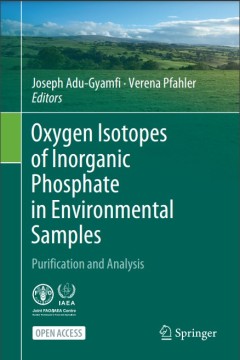
Young people, ethics, and the new digital media : a synthesis from the GoodPl…
Social networking, blogging, vlogging, gaming, instant messaging, downloading music and other content, uploading and sharing their own creative work: these activities made possible by the new digital media are rich with opportunities and risks for young people. This report, part of the GoodPlay Project, undertaken by researchers at Harvard Graduate School of Education's Project Zero, investigat…
- Edition
- -
- ISBN/ISSN
- 9780262513630
- Collation
- XIV, 109 p.
- Series Title
- -
- Call Number
- 302.2310835 JAM y
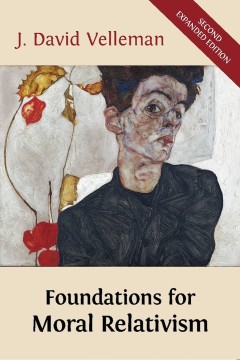
Foundations for moral relativism: second expanded edition
- Edition
- -
- ISBN/ISSN
- 9781783740352
- Collation
- xii + 144 p.; 23 cm.
- Series Title
- -
- Call Number
- 153.4 VEL f
- Edition
- -
- ISBN/ISSN
- 9781783740352
- Collation
- xii + 144 p.; 23 cm.
- Series Title
- -
- Call Number
- 153.4 VEL f
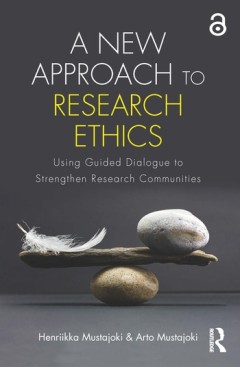
A new approach to research ethics : using grounded dialogue to strengthen res…
Ethics and Academic Research examines both theories of ethical decision-making as well as apply those theories to a broad range of situations and questions within a research career and process. The focus is not only on what is wrong, or in doing the actual research, it is a broader perspective on how ethics can be a positive force in strengthening the research community. Offering valuable guida…
- Edition
- -
- ISBN/ISSN
- 9781138682214
- Collation
- xvii, 236p. : ill.
- Series Title
- -
- Call Number
- 174.90014 MUS n
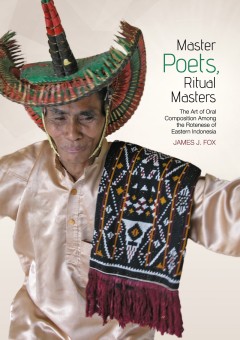
Master poets, ritual masters : the art of oral composition among the Rotenese…
This is a study in oral poetic composition. It examines how oral poets compose their recitations. Specifically, it is a study of the recitations of 17 separate master poets from the Island of Rote recorded over a period of 50 years. Each of these poets offers his version of what is culturally considered to be the ‘same’ ritual chant. These compositions are examined in detail and their oral …
- Edition
- -
- ISBN/ISSN
- 9781760460068
- Collation
- xv, 444p. : ill
- Series Title
- -
- Call Number
- 398.2095987 FOX m
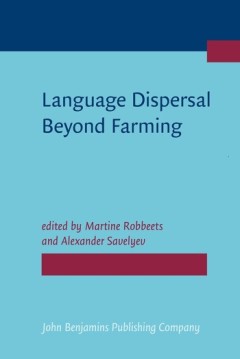
Language dispersal beyond farming
Why do some languages wither and die, while others prosper and spread? Around the turn of the millennium a number of archaeologists such as Colin Renfrew and Peter Bellwood made the controversial claim that many of the world’s major language families owe their dispersal to the adoption of agriculture by their early speakers. In this volume, their proposal is reassessed by linguists, investiga…
- Edition
- -
- ISBN/ISSN
- 9789027264640
- Collation
- xiii, 324p. : ill.
- Series Title
- -
- Call Number
- 417.7 LAN l
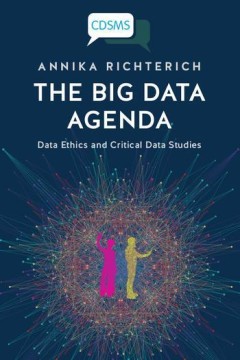
The big data agenda : data ethics and critical data studies
"This book highlights that the capacity for gathering, analysing, and utilising vast amounts of digital (user) data raises significant ethical issues. Annika Richterich provides a systematic contemporary overview of the field of critical data studies that reflects on practices of digital data collection and analysis. The book assesses in detail one big data research area: biomedical studies, fo…
- Edition
- -
- ISBN/ISSN
- 9781911534754
- Collation
- vi, 148p. : ill.
- Series Title
- -
- Call Number
- 005.7 RIC b
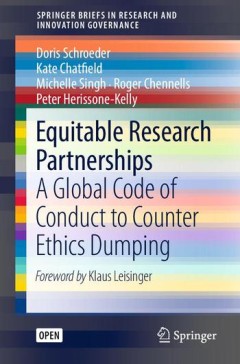
Equitable research partnerships : a global code of conduct to counter ethics …
This open access book offers insights into the development of the ground-breaking Global Code of Conduct for Research in Resource-Poor Settings (GCC) and the San Code of Research Ethics. Using a new, intuitive moral framework predicated on fairness, respect, care and honesty, both codes target ethics dumping – the export of unethical research practices from a high-income setting to a lower- o…
- Edition
- -
- ISBN/ISSN
- 9783030157456
- Collation
- xix, 122p : ill,
- Series Title
- -
- Call Number
- 174.9 SCH e
 Computer Science, Information & General Works
Computer Science, Information & General Works  Philosophy & Psychology
Philosophy & Psychology  Religion
Religion  Social Sciences
Social Sciences  Language
Language  Pure Science
Pure Science  Applied Sciences
Applied Sciences  Art & Recreation
Art & Recreation  Literature
Literature  History & Geography
History & Geography